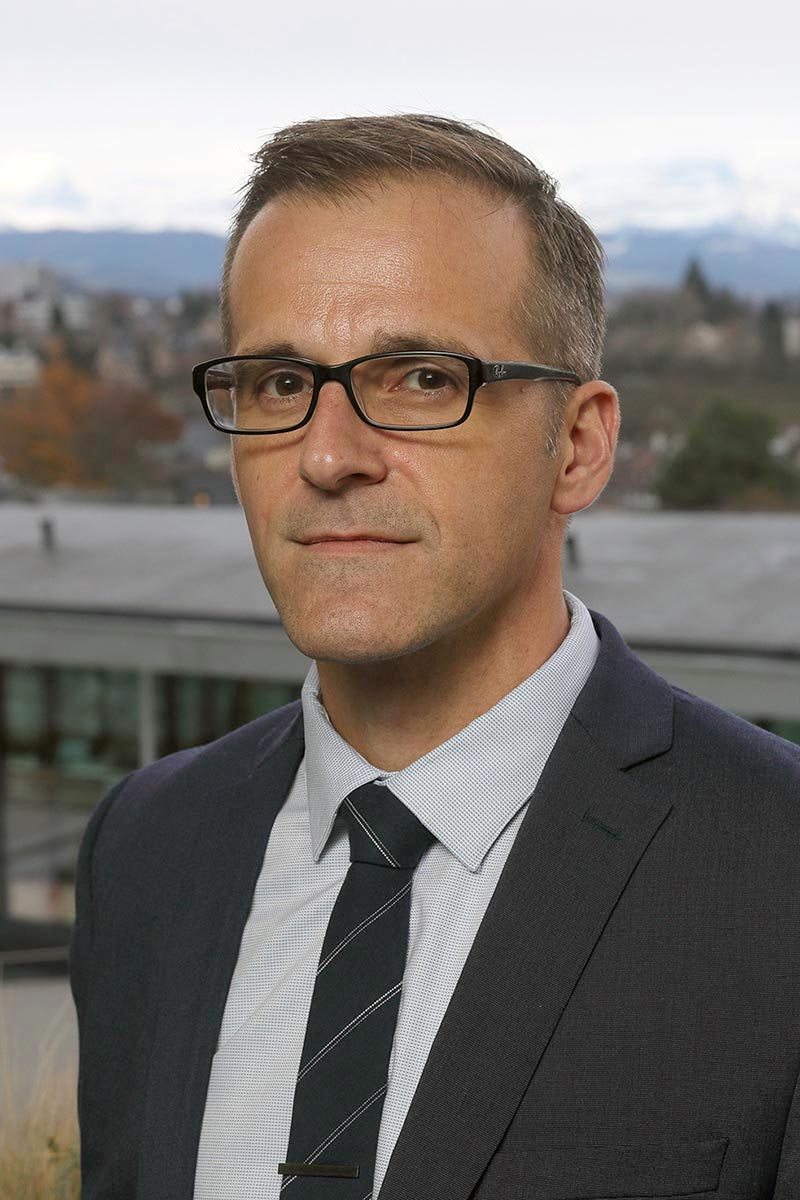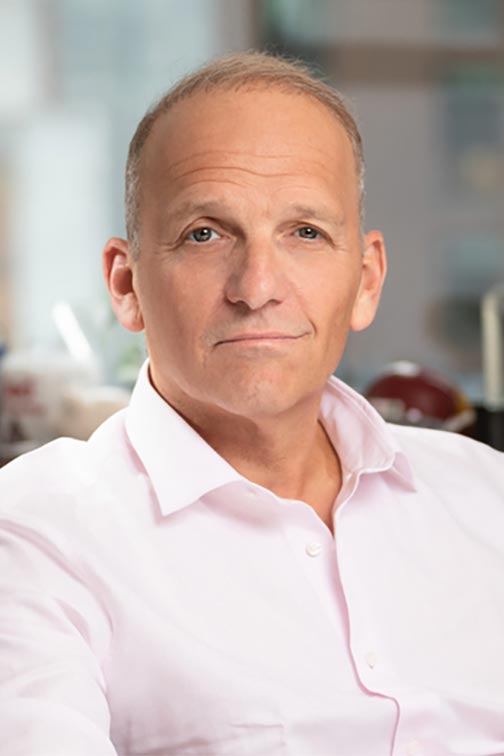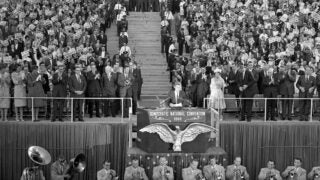USC Shoah Foundation announces new leadership
Robert J. Williams will lead the institute, which studies and preserves the stories of survivors and witnesses of the Holocaust and other genocides. Joel Citron is named chair of its Board of Councilors.
Robert J. Williams is on a mission: to ensure that the memories of survivors and eyewitnesses of the Holocaust and other genocides have a permanent home, are widely shared and are never forgotten.

Williams will bring extensive experience and purpose to his new role as the Finci-Viterbi Executive Director of USC Shoah Foundation — The Institute for Visual History and Education.
Williams most recently served as deputy director of international affairs at the United States Holocaust Memorial Museum (USHMM) in Washington, D.C., and will begin his new position on Oct. 31. He considers USC Shoah Foundation one of the pillars of Holocaust research, with its unique mission to develop empathy, understanding and respect through testimony with survivors and witnesses of the Holocaust and other genocides.
“In order to know where we are going, we need to know where we came from,” said Williams. “While the voices of our survivors will live on forever, we have reached a point where many won’t be in person to share their stories, so it is our responsibility to carry forth and learn from the legacy of this history.”
USC President Carol L. Folt said: “Rob is a well-respected leader known for his talent, vision and compassion. He’s exactly the person to ensure this treasured and irreplaceable archive of humanity will be protected and preserved for all time. And he will draw on his experience at the USHMM to make sure the institute becomes even more accessible and impactful in the world.”
The work of USC Shoah Foundation is more important and more relevant now than ever.
Steven Spielberg,
USC Shoah Foundation founder
“The work of USC Shoah Foundation is more important and more relevant now than ever — especially given the rising threats to democratic values we see every day around the world,” said Steven Spielberg, founder of USC Shoah Foundation. “I’m deeply grateful to have Rob leading our organization and continuing our work to fulfill the sacred responsibility we have to survivors by ensuring their testimonies live on forever.”
Joel Citron, the new chair of USC Shoah Foundation’s Board of Councilors, is looking forward to working with Williams’ global network of thought leaders, heads of non-governmental organizations and experts on governmental issues. He is also pleased that Williams has a deep knowledge of USC Shoah Foundation and has already collaborated with the staff. “I think that provides an opportunity for a fabulous future,” Citron said.

Citron added that he is “impressed and grateful” for the way Folt has focused on the significance of USC Shoah Foundation at the university. “The foundation enters this time period with not only an ability to integrate and build community within USC, but also outside the university to an extent I’m not sure we could have done before,” he said.
“We are so fortunate that Joel will be bringing his passion, dedication and leadership to the Institute.” Folt said. “I am grateful to interim Executive Director Kori Street and the entire staff who have been working diligently to expand the global reach of this critical resource for current and future generations.”
Through his work at USHMM, Williams had already established a long-standing relationship with the institute, which has more than 55,000 video testimonies preserved in its Visual History Archive — one of the largest digital collections of its kind in the world.
The institute’s trained interviewers have collected testimony from 65 countries in 43 languages. Most include the personal history of an interviewee’s life before, during and after their firsthand experience with genocide. Scholars use the testimonies — most of which are around two hours in length — to create books, articles, dissertations and multimedia presentations.
USC Shoah Foundation executive director: a student of history
Williams began his career at USHMM as a researcher in 2008. He has been a U.S. delegate to the International Holocaust Remembrance Alliance and also served on both the Global Task Force Against Holocaust Distortion steering committee and the Committee on Antisemitism and Holocaust Denial at the International Holocaust Remembrance Alliance. His research specialties include German history, U.S. and Russian foreign policy, propaganda and disinformation, and contemporary antisemitism.
The Holocaust is something that’s been twisted and misused.
Robert J. Williams, USC Shoah Foundation
“The Holocaust is something that’s been twisted and misused,” Williams said. “The reason they’re able to twist and misuse the Holocaust as propaganda is because we, on the other side, haven’t done a good enough job of understanding the history and talking to the global public.”
He believes if a better job is done bringing people to the subject and educating them, manipulation and propaganda will have less of an effect.
“It’s a very important moment for Holocaust history,” Williams said. “You have a lot of the same challenges that we’re facing today, including encroaching totalitarianism, refugee crises, mass atrocity crimes and human rights violations.”
A personal connection to USC Shoah Foundation archive
Citron, chief executive officer of Tenth Avenue Holdings, is a double Trojan alum who has a personal connection to the work of the institute: Both his parents and an aunt are survivors of Auschwitz-Birkenau, and their interviews are included in the archive.
“I feel the mission of the foundation is really part of every fiber of my being,” he said. “It’s my parents, and it’s my community. It is very, very important to me to do the best I possibly can.”
The institute was established in 1994 by filmmaker Spielberg following the production of Schindler’s List, his Academy Award-winning film about a German industrialist who saved more than 1,000 Jewish people during the Holocaust. The institute became a part of USC in 2006.
In addition to its global reach, USC Shoah Foundation plays an important role at the university, regularly hosting lectures, events and programming for students, faculty and staff. The institute’s Stronger Than Hate initiative involves the entire university community in an effort to promote inclusivity, connection and support.
Folt said she is grateful to the search committee for its care and hard work throughout the process and expressed her appreciation to the Board of Councilors for its exceptional efforts in maintaining the important momentum of the institute.



